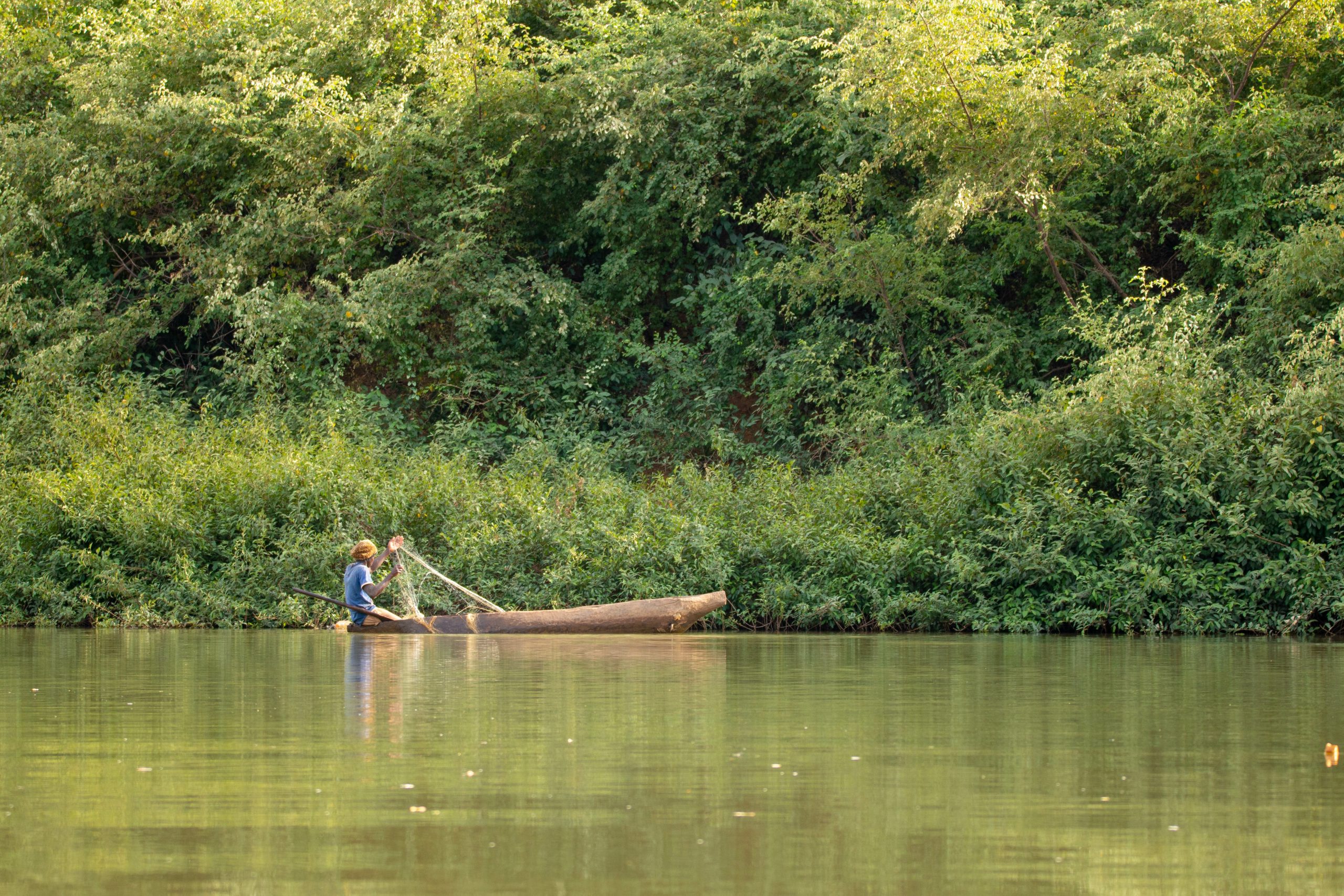News
The future of tropical rainforests depends on integrated support for local communities: the Congo Basin in focus

News | Jun 2022
Tropical forests provide vital homes for people and nature, as well as helping to mitigate climate change. As part of celebrations for International Day of the Tropics, we showcase some of the key research coming from the UNEP-WCMC Trade, Development and the Environment Hub (TRADE Hub), exploring how increased forest and farming protections, better monitoring and boosting locally important food crops could make a real difference to the future of the Congo Basin.
The mighty Congo forest
The basin of the Congo River hosts the second largest tropical rainforest in the world.. Mainly spread over Cameroon, the Central African Republic, the Democratic Republic of Congo, the Republic of Congo, Gabon, and Equatorial Guinea, the Congo forest covers more than 178 million km2. Congo Basin forests support the livelihoods of more than 75 million people, most of whom live below the poverty line. Forest conservation, food and nutrition security and poverty eradication are intricately linked in the Congo Basin.
Even though deforestation rates in the Congo Basin are lower than those in the Amazon or in Borneo, there are indications that forest loss is increasing, albeit at a slower rate. Growing populations in rural and urban centers are driving the expansion of shifting agriculture and hunting for subsistence and commercial purposes. Forest clearing and harvesting are the primary drivers of deforestation and loss of wildlife in the forest. These factors interact with other drivers of deforestation, including local and international supply chains for timber, minerals, and agricultural commodities.
Importance of integrating policies for food, livelihoods, and trade
UK Research and Innovation funds the TRADE Hub, which is a multi-country research collaboration, led by UNEP-WCMC, that seeks to understand how trade in commodities and wildlife can become sustainable, with a focus on delivering tangible benefits for local communities and natural ecosystems.
The Congo Basin is an important focal region for the TRADE Hub, which is investigating how smallholder agricultural expansion may impact biodiversity and ecosystem services, how farmers can be empowered and supported to transition to sustainable agricultural production, how wildmeat and other wildlife value chains extend from rural areas to cities, and how demand for wild-harvested resources can be reduced without harming communities directly dependent on these resources for income and food. The TRADE Hub is actively engaging public and private sector decision-makers with findings from the project, to better inform action taken at national and local levels.
Here we detail some of the TRADE Hub’s key food, farming and policy findings relevant to the Congo Basin, with emerging recommendations to guide the evolution of sustainable trade in the region:
Weakened forest governance and low support for farmers
Even though most countries of the Congo Basin have strong forest regulations, their governance and implementation is often insufficient, meaning that forests lack effective management and protection. In addition, due to a lack of investment in agriculture by governments and development partners, yields per hectare for commodities like palm oil (mainly used locally) and cocoa (mainly exported to the international market) are low compared to levels of production in other tropical regions. This is likely to drive further forest loss as demand for these commodities increases, leading farmers to expand plantations to increase production.
Two primary approaches are important to provide better levels of income, food and nutrition security for people, while conserving the rich biodiversity of the Congo Basin: strengthening national and regional forest protection policies and their implementation, including support for increasing agricultural productivity; and addressing drivers of deforestation through international supply chains.
At national and regional levels, policies and strategies are most effective when they include land use planning, land tenure systems, support for sustainable intensification of agricultural production, and financial resources and education for farmers (particularly smallholders). Regarding international supply chains, national government regulation and private sector leadership on factors such as fair pricing is essential to ensure a living income for farmers.
Many companies already use mechanisms to certify sustainably-produced commodities, such as Voluntary Sustainability Standards (eg: the Rainforest Alliance standard for cocoa). However, certification levels remain very low, and certification schemes are a market-based mechanism that may not address the wide scope of social and environmental issues that hinder sustainable trade systems. For example, our research shows that certification schemes have only transformed certain niche-markets so far, and greater coordination between global agendas and stakeholders is necessary to scale up efforts for systemic changes.
Increasing pressure to provide deforestation-free commodities
Commodity importing entities including the EU and the UK are discussing mandatory due diligence legislation that will require companies to demonstrate that imported commodities are deforestation-free and produced in a way that distributes benefits of trade equitably. Such legislation will require considerable enhanced levels of traceability, in turn requiring better data and regulation both in producing regions and along the entire supply chain.
An appropriate approach to local food provision
Non-Wood/Non-Timber Forest Products, such as Bush Mango (Irvingia spp.), African cherry (Prunus africana), and Njansang (Ricinodendron heudelotii), as well as wildmeat, are hugely important sources of income and nutrition in the Congo Basin.
Improving investments and sustainable harvesting of these products could likely provide more returns for indigenous and local communities and nature in the long run than from timber harvesting and conversion of forests to agricultural plantations. TRADE Hub is currently researching production systems for these supply chains, to identify promising future opportunities.
Find out more about how TRADE Hub is working with communities around the world to research and promote sustainable local production and transform global supply chains via the project’s new 2021/2022 Interim Impact Report.
Have a query?
Contact us
communications@unep-wcmc.org
